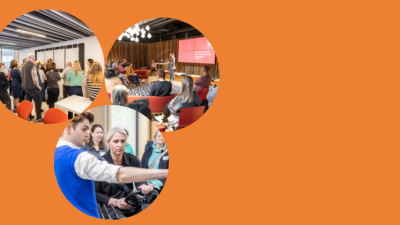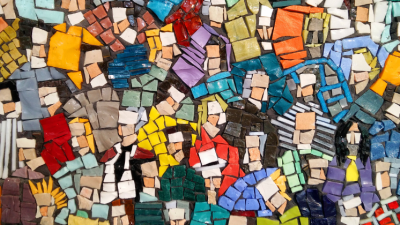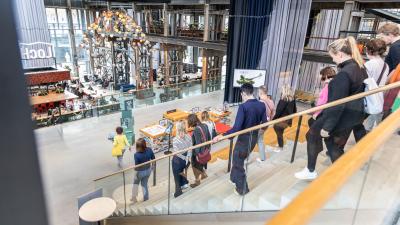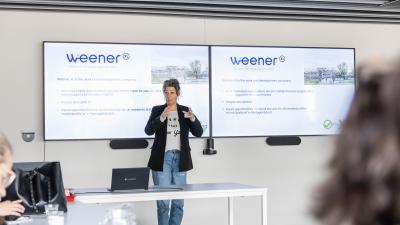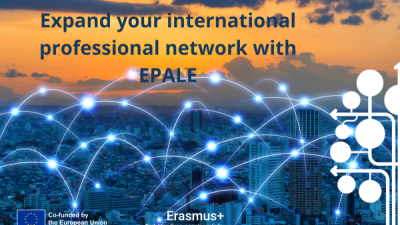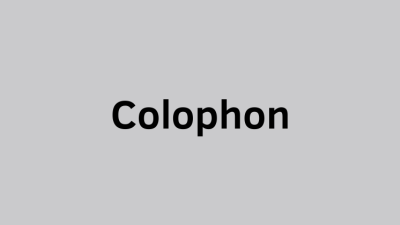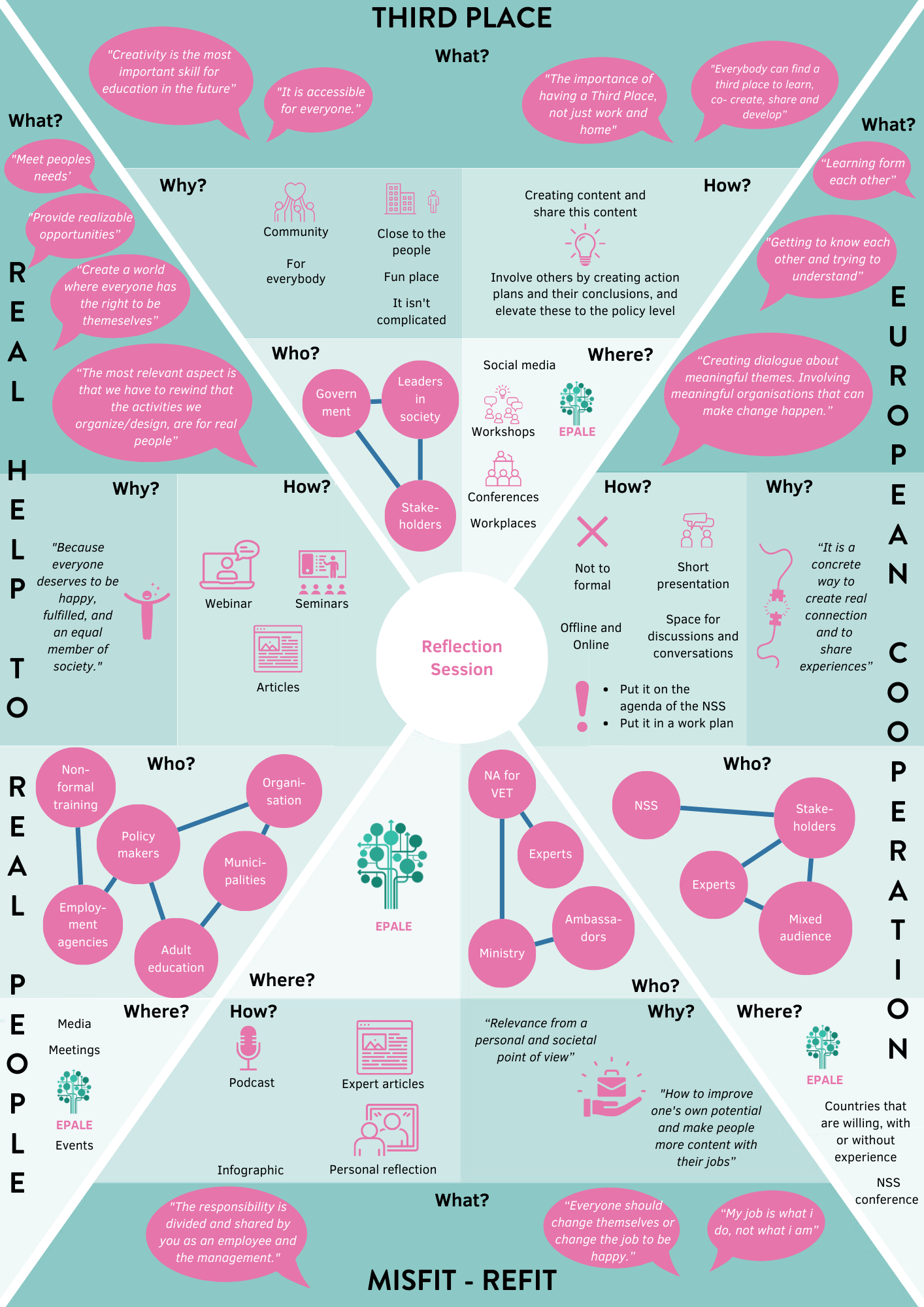1: The third space
The concept of the third space helps to explain the sense of community, learning and positive experiences. It is a place close to people where creativity is key. This concept is at the heart of our education and lifelong development. It is a place for everyone, which is accessible and adapted to individual needs. Those involved, as well as stakeholders including NGOs, authorities and public leaders, can contribute through workshops, conferences and social media. ‘We need to transform these ideas into policies and create change through engagement and shared content. In this way, we can make learning accessible and fun for everyone!’
2: From misfit to re-fit
Another point that was identified is the journey from ‘misfit’ to ‘re-fit’. It is all about finding an appropriate place in the labour market for everyone by focusing on happiness, balance and shared responsibility. Existing and potential newly acquired skills are more important than qualifications. This is relevant at both the personal level and at the level of society, and demands commitment from experts, ambassadors and ministries. We can spread this idea further through personal reflections, podcasts and infographics. EPALE is the ideal platform to promote this idea at the European level.
3: The power of European cooperation
For many participants, this visit reconfirmed the importance and power of European cooperation. It is not just a question of learning from others, but also of actively sharing that knowledge. Although the NSSs (National Support Services) are already strongly committed to this, this experience showed that more attention can be devoted to prioritising quality over quantity, and to exchanging specific ideas, creating together and inspiring one another. EPALE, experts, ambassadors and other stakeholders have a place and a role to play in this process within the framework of Erasmus+. This will require cooperation in creative and inspiring environments with space for discussion and forging connections. It is important to put this on the agenda of the NSS meetings and to integrate it into the work schedules. The possibilities include online meetings, short, dynamic presentations and exchanges on location.
4: Real help for real people
The work of adult learning professionals, and thus also of EPALE, is all about designing activities that focus on the real needs of real people. This requires cooperation between informal training organisations, employment agencies, municipalities and other institutions to create truly equal opportunities for everyone. These ideas should be promoted in seminars, webinars and articles on EPALE.
These results aren’t just ideas on paper: they are building blocks for action and change. Together, they can shape the future of learning and cooperation.
